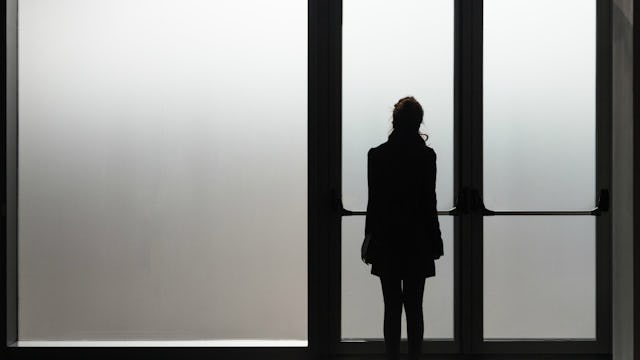How I Escaped The Abyss Of Anxiety

Is this what a heart attack feels like? I feel blood pounding in my ears, tightness in my chest, and a racing heart. I am a million miles away from the conversation around me, unable to listen or comprehend the words being said.
I rely on short responses and smiles to pass for a normal human being. I keep my hands busy, clearing clutter, washing dishes, constantly moving.
Inside, I feel like I’m dying. My body is sounding an alarm, but I try to ignore it. I hope, in vain, it will just go away if I occupy my mind with busy work or other people’s concerns.
This is what anxiety feels like to me. Once I am in this heightened state, I can’t talk my way out of it. I walk around feeling like there is a vise grip on my heart.
These are the times when I used to pull out a bottle of wine, seeking to drown the tension in my body. And you know, it actually worked… until it didn’t. In the aftermath, I felt worse, and the underlying issues remained unacknowledged.
Anxiety would visit on a cyclical basis. I would be fine for weeks, and then the unwelcome visitor would return. Somewhere between preparing lunch boxes, coaxing the kids to get moving, making breakfast, emptying the dishwasher, organizing paperwork, and “Get your shoes on!” for the twentieth time, I would lose myself. Robot Mom would take over.
As my heart and mind retreated, I eventually became hidden even to myself. My emotions were unwelcome visitors. While Robot Mom’s armor grew stronger, a deep well of sadness grew within me, always daring to overflow.
Last fall, I realized that I had been battling anxiety on and off for over five years (although I would always tell myself it had only been a few months). After a particularly intense trip to the abyss, I realized I needed help if I ever wanted to escape the revolving door in which I felt trapped.
I began to make changes that led towards freedom: starting anti-anxiety medication, saying “no” more often, and talking honestly with my husband about my struggles, even telling him where I needed him to step up. I stopped turning to the false relief of alcohol.
I found a therapist, and with her help began to look at my anxiety as a teacher. Instead of running from it, I needed to turn toward it and ask, “What are you here to teach me?”
Of course, not everyone can afford to see a therapist regularly, and you should see a doctor for a proper diagnosis. But the seemingly simple act of turning towards my emotions rather than away from them was revolutionary to me. I’m supposed to actually feel my feelings? Wild, right?
Perhaps most importantly, I’ve learned to slow down. I no longer wish for a life without anxiety or emotion. To be fully alive is to feel. I’m called to sit with these visitors until I understand them. Meditation and journaling help.
I still experience anxiety, although less frequently than before. I now know to pay attention. I stop, breathe deep, become aware of what is.
This article was originally published on